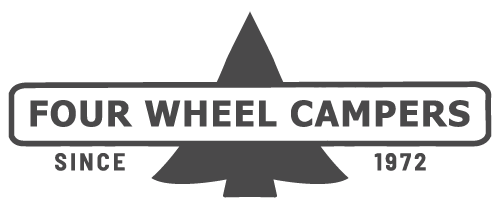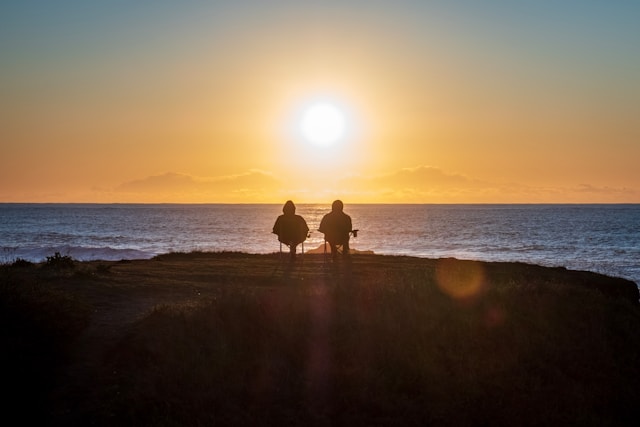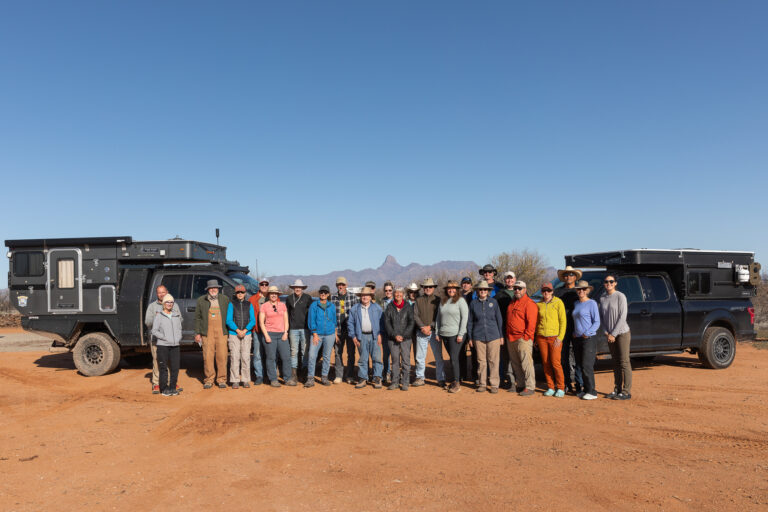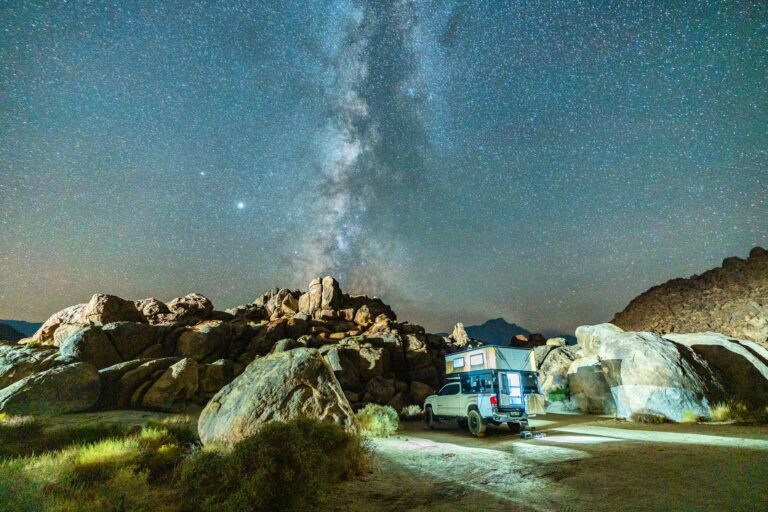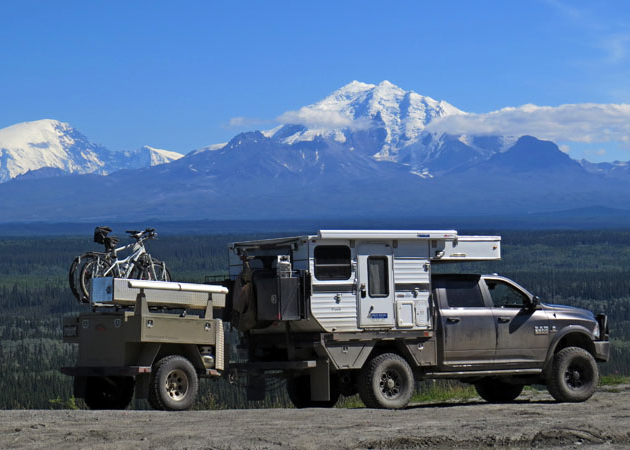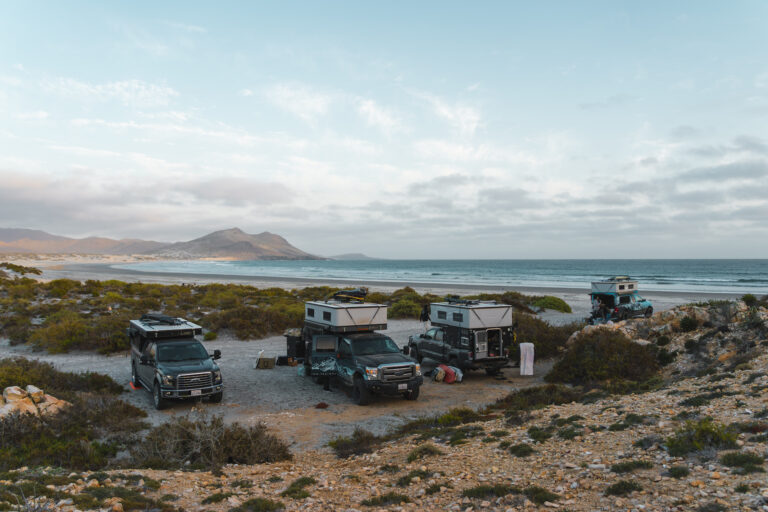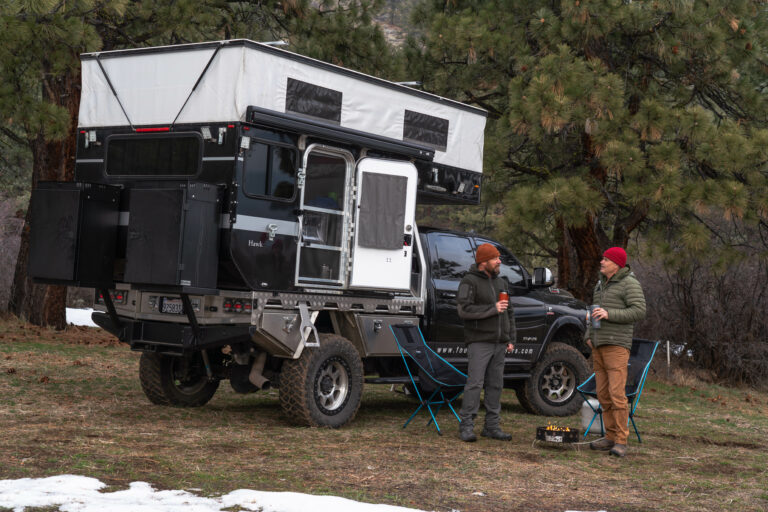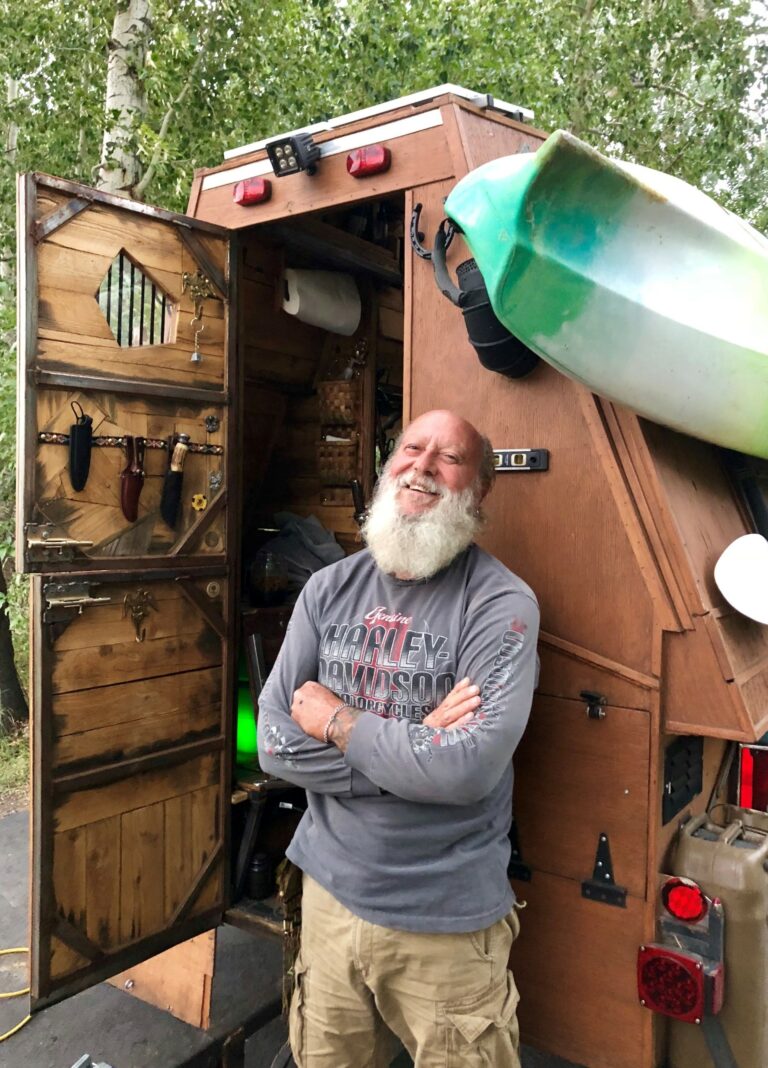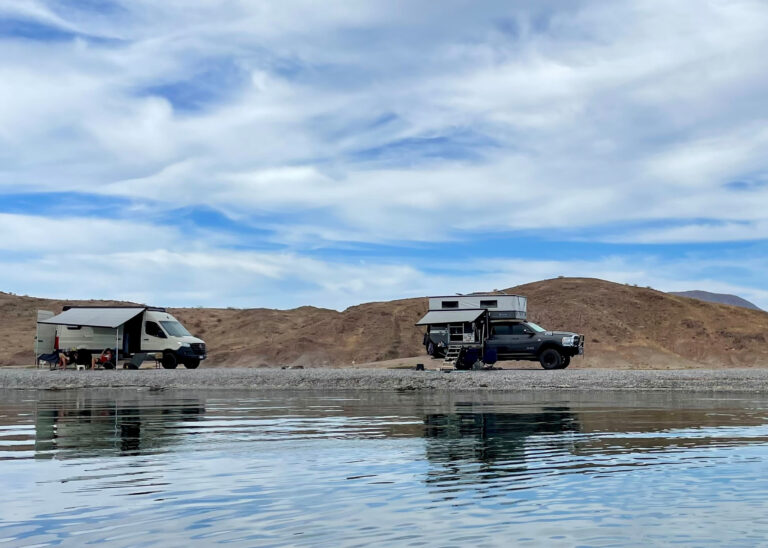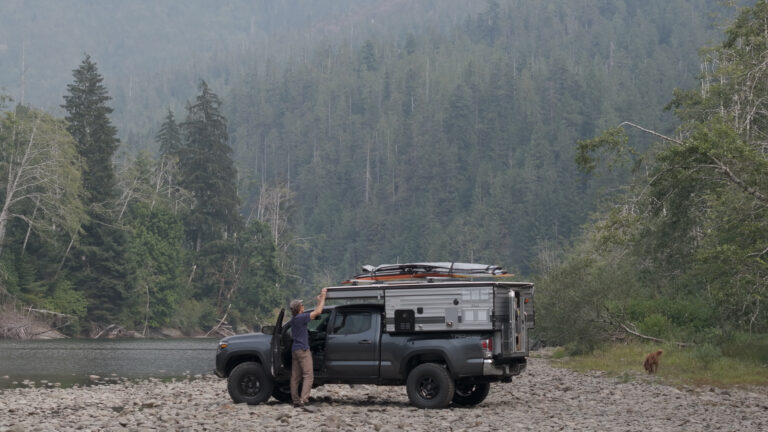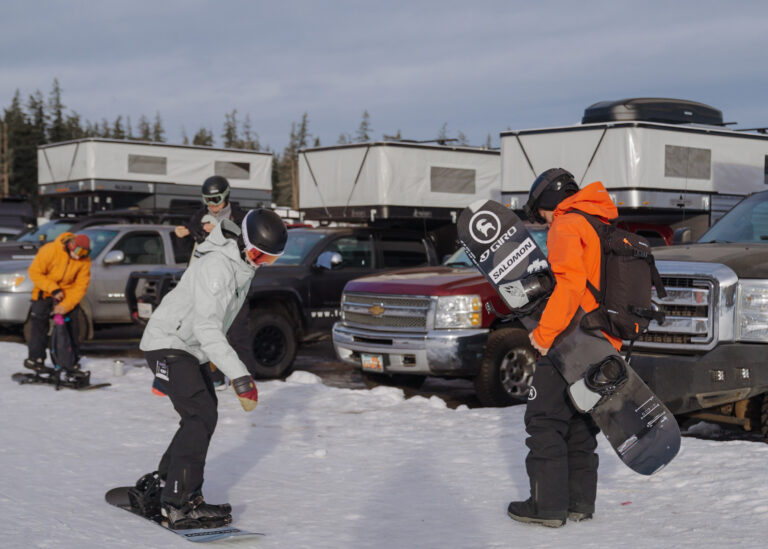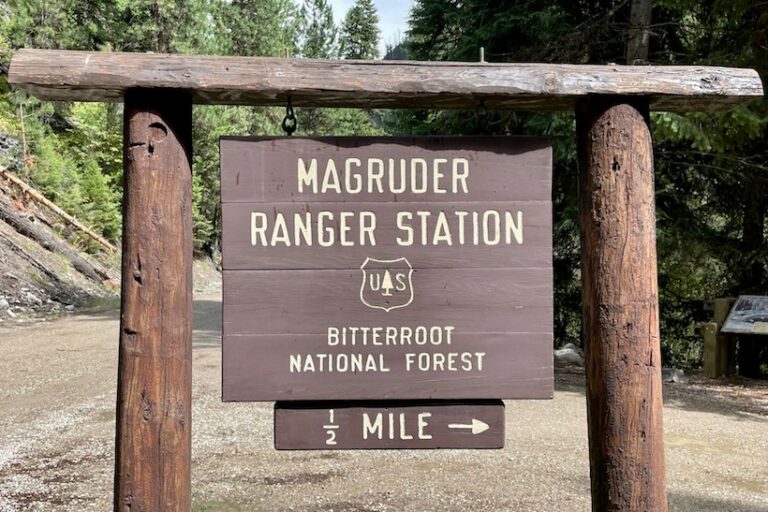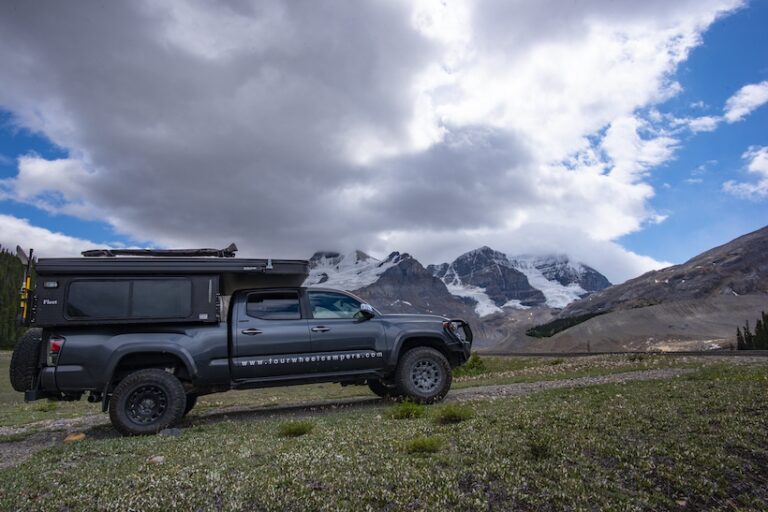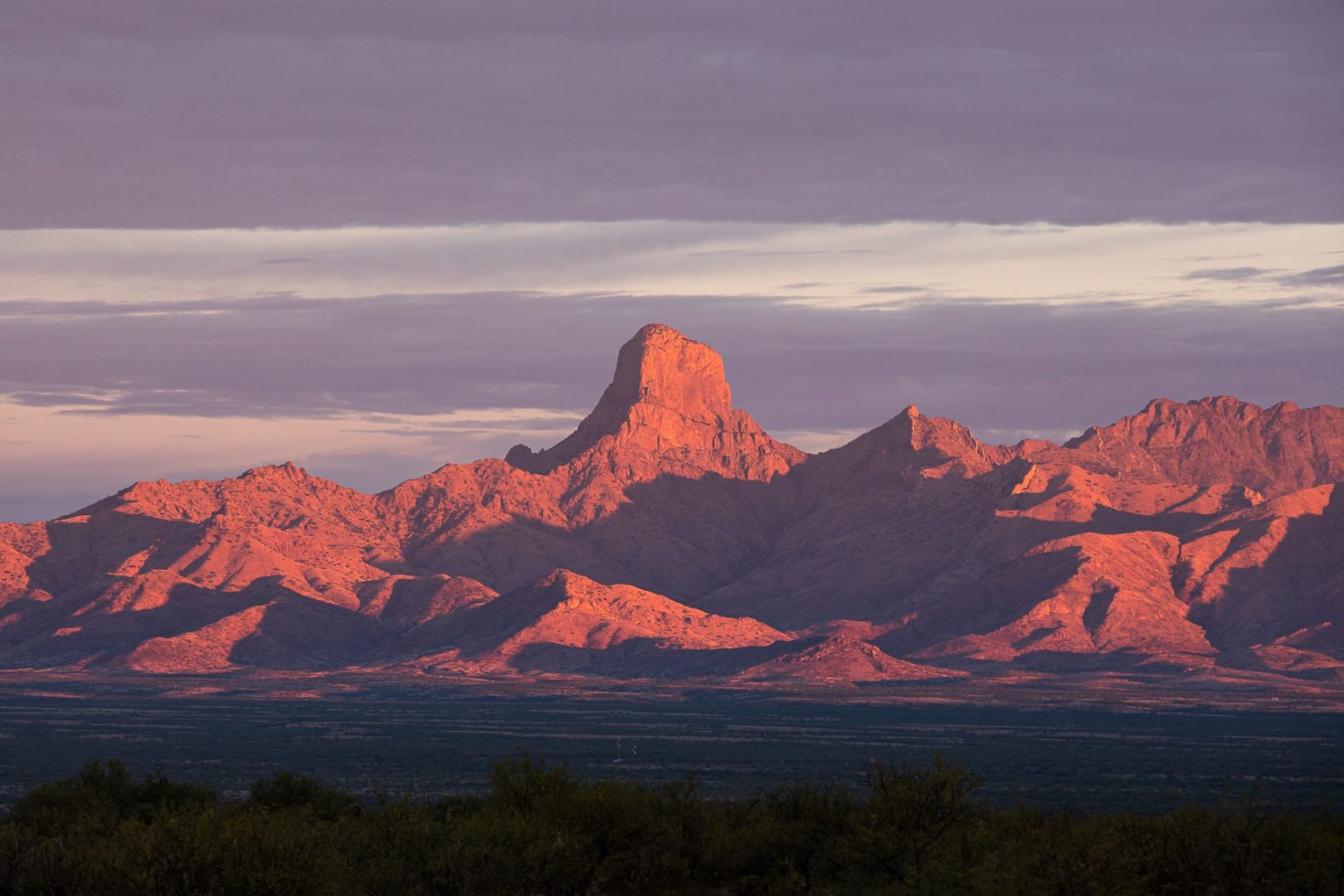
Recap: Four Wheel Campers’ Earth Day Volunteer Event in Arizona
The first time I visited Buenos Aires National Wildlife Refuge, I felt like I had traveled back in time to the Wild West. I was blown away by the vastness of the Sonoran desert grassland, and the next morning I was treated to some of the most incredible alpenglow I’ve ever seen on the Baboquivari Mountains. It was at that exact moment that I fell madly in love with the place. On my final day, I bumped into two seasonal U.S. Fish and Wildlife Service volunteers, and I left feeling inspired. I returned a few months later to document their work for Arizona Highways — and to spend several days volunteering with Friends of Buenos Aires Wildlife Refuge (Friends of BANWR). I made new friends, observed new species and started thinking about how I could do more for the 118,000-acre wildlife refuge, which has its fair share of challenges.
Friends of BANWR is a nonprofit 501c3 that supports the refuge, which provides critical habitat for the endangered masked bobwhite quail, plus a wealth of other wildlife, including pronghorn, mule deer, javelina, coyotes, bobcats, mountain lions and hundreds of avian species. The refuge is an hour south of Tucson, Arizona, and it sits along five-and-a-half miles of the U.S.-Mexico border. Before it was acquired by USFWS in the 1980s, the refuge used to be ranch land, and from invasive vegetation to a proliferation of mesquite trees, the impact of cattle is visible everywhere. Throw in a historic drought and a lack of federal funding, and you’ll understand why the refuge needs as many friends as possible.
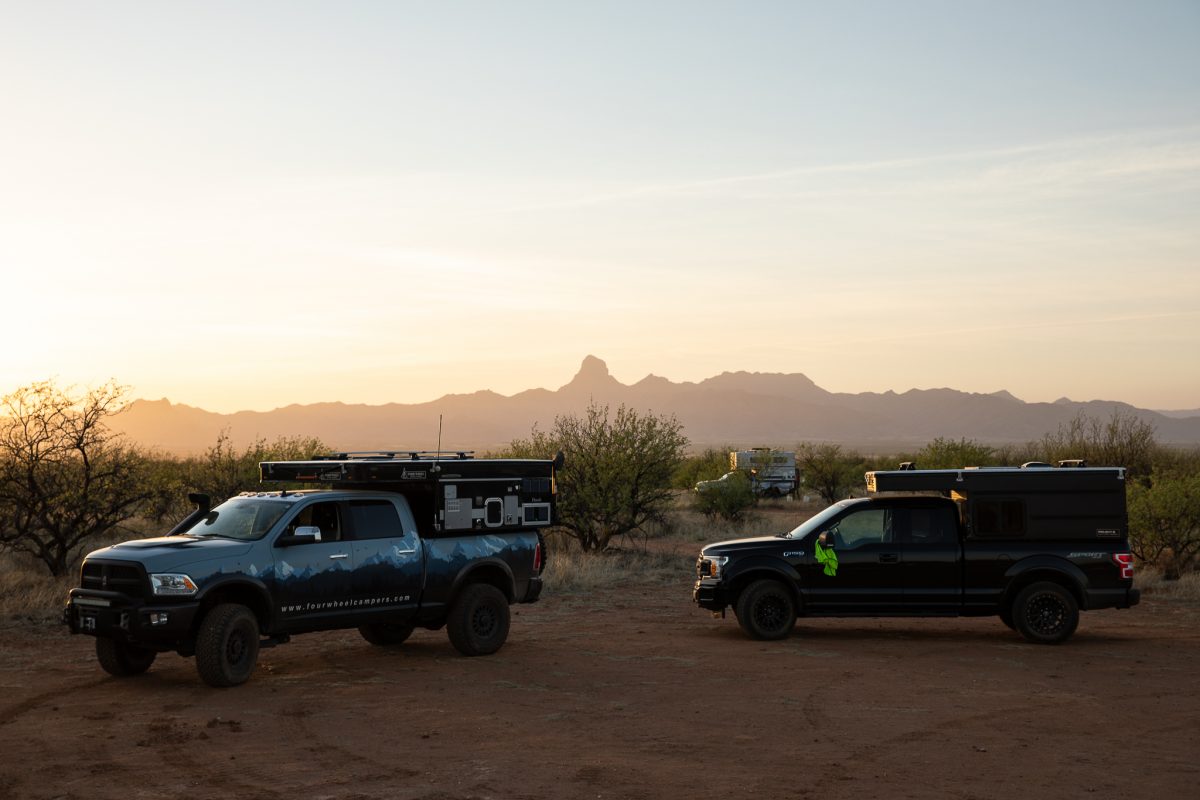
When I first chatted with Four Wheel Campers about giving back to our public lands, I was met with great enthusiasm. We knew we wanted to team up with environmental organizations and host volunteer events that included camping, and from there we built a plan. Since I had a relationship with Friends of BANWR and it’s one of my favorite places to camp, it was a natural choice for our inaugural event, which ran on Earth Day 2022. After exchanging countless emails, strategizing with Friends of BANWR on volunteer tasks and ordering supplies, we arrived at camp, just in time for sunset.
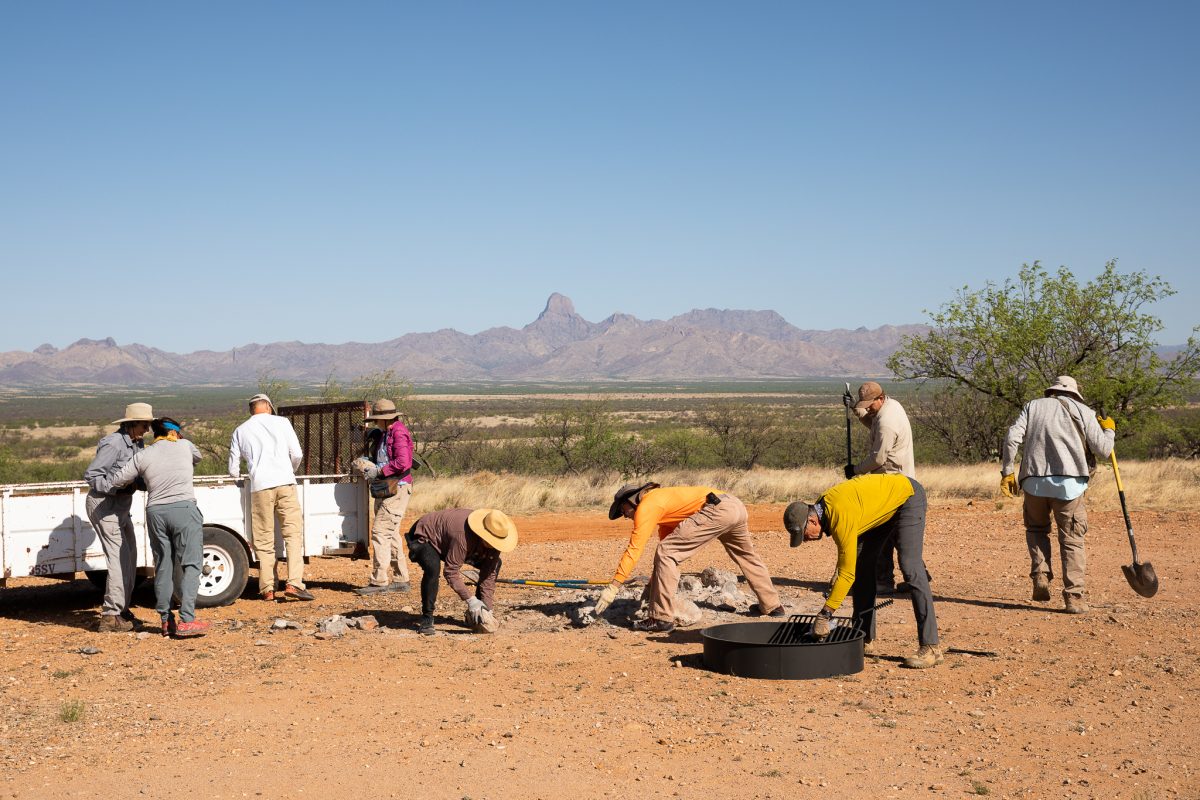
Around 7:15 a.m. the next morning we met with Reta Rutledge, Vice President of Friends of BANWR, who gave us a rundown on our first task of the day: installing metal fire rings in the Refuge’s most popular campsites. Half of the volunteers helped dismantle the existing rock fire rings and load them into Reta’s trailer, only to unload them shortly thereafter to fill in erosion zones. At some of the larger campsites, we were also tasked with disposing of massive piles of ash and charcoal left by careless campers. The rest of the volunteers worked with the USFWS maintenance department to assemble and cement new metal campfire rings to the ground. While fires are permitted at all campsites in the refuge, many visitors have built multiple fire rings at some sites, some of which are too large for safe campfires. Not only will this help protect some of these campsites, but it helps make the citation process easier for law enforcement officers.
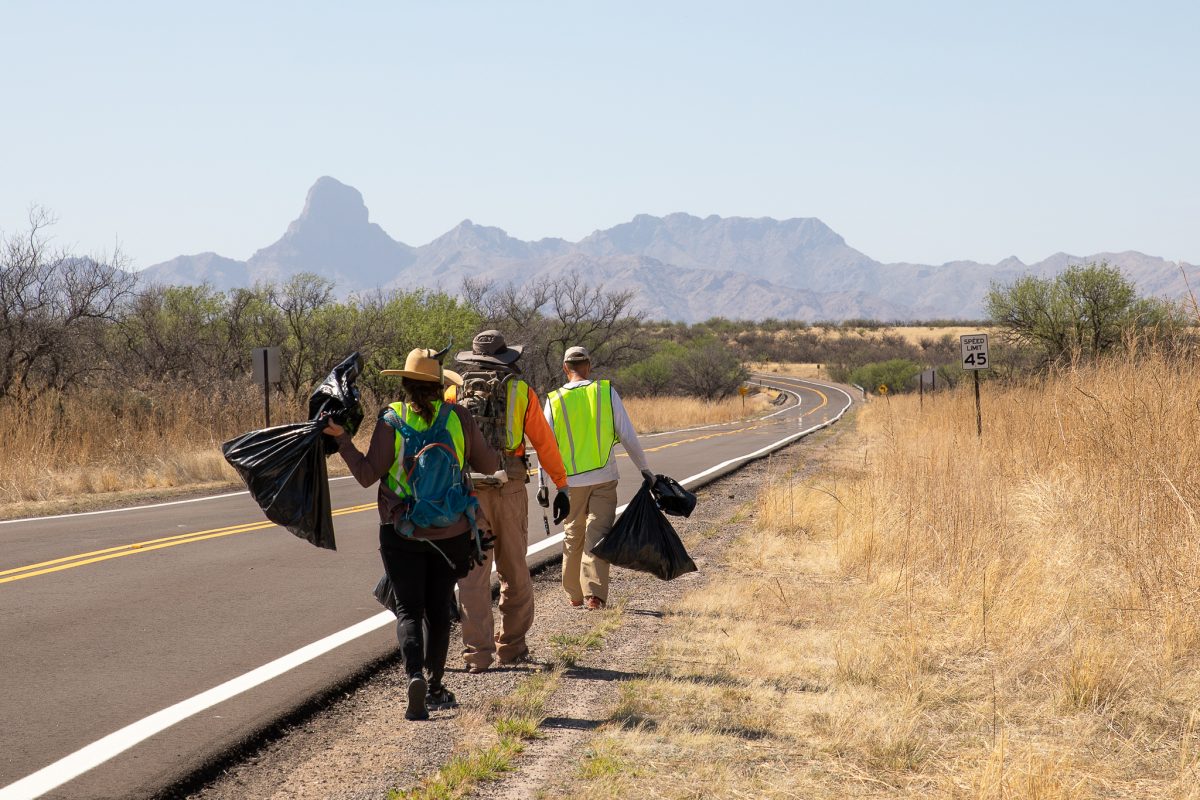
After a lunch break, volunteers split into several smaller groups to pick up trash along two miles of Arivaca-Sasabe Road, which is near many of the refuge’s prime campsites. After the last bag of litter was hauled away around 4 p.m., volunteers enjoyed a leisurely afternoon at camp, followed by drinks around the campfire. While Four Wheel Campers provided snacks and beverages for all volunteers, most folks opted to do dinner on their own each night. However, when word got out that some of us were making fully-loaded veggie tacos, it became more of a communal dining experience, and everyone pitched in.
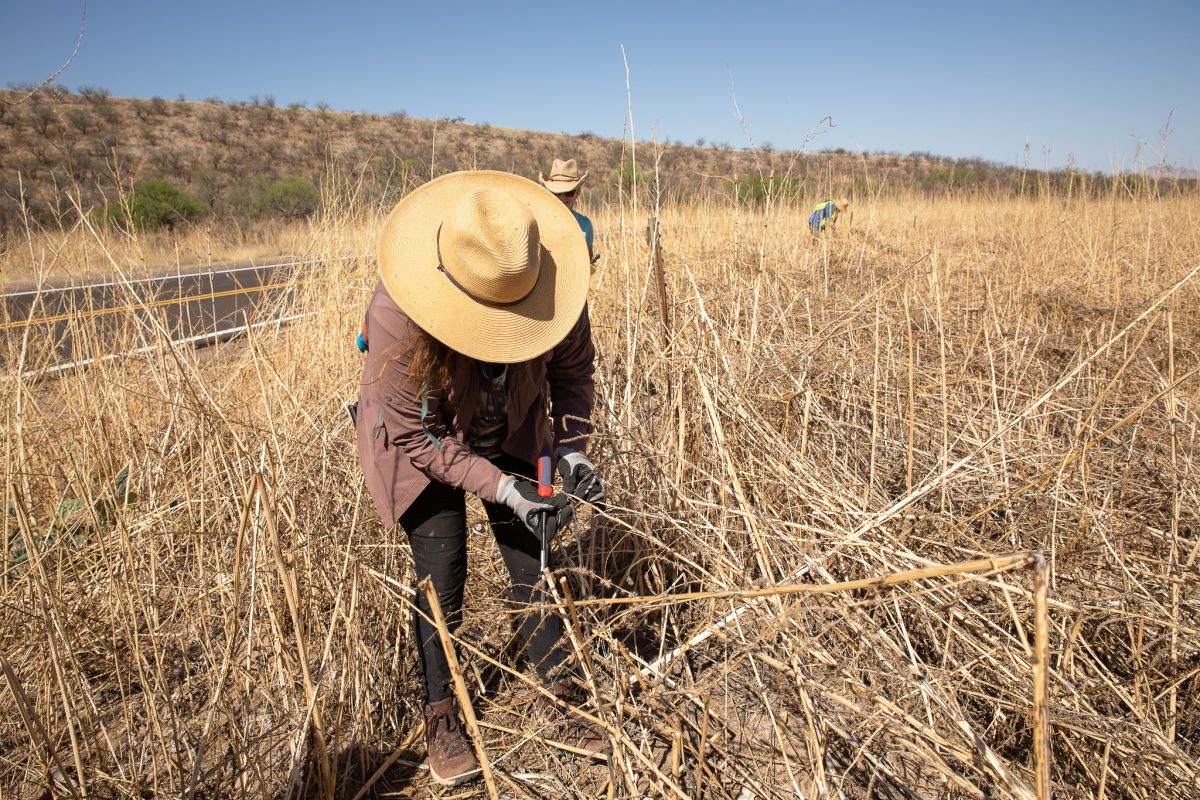
On the second morning, our group assembled around 8 a.m. and removed two miles of old, barbed wire fencing along Arivaca-Sasabe Road. The roadside fence, which often harms game, will eventually be replaced with wildlife-friendly boundary fencing. Barbed wire fencing can also be found inside the refuge, and Friends of BANWR has removed over 180 miles of interior fencing over the last decade. The interior fencing is from the refuge’s ranching days, whereas the roadside/boundary fencing was erected more recently to keep out neighboring cows, which are not permitted in the refuge. While it does prevent cattle from wandering in the refuge and depleting valuable natural resources, it can be very problematic for animals like pronghorn and deer.
Trash pickup resumed after lunch, and with the help of several new volunteers, the group removed litter along three miles of Arivaca-Sasabe Road. After collecting countless beer cans along the road, we opened up a few cold ones at camp, and our group enjoyed another night of campfire stories as coyotes serenaded us from a distance.
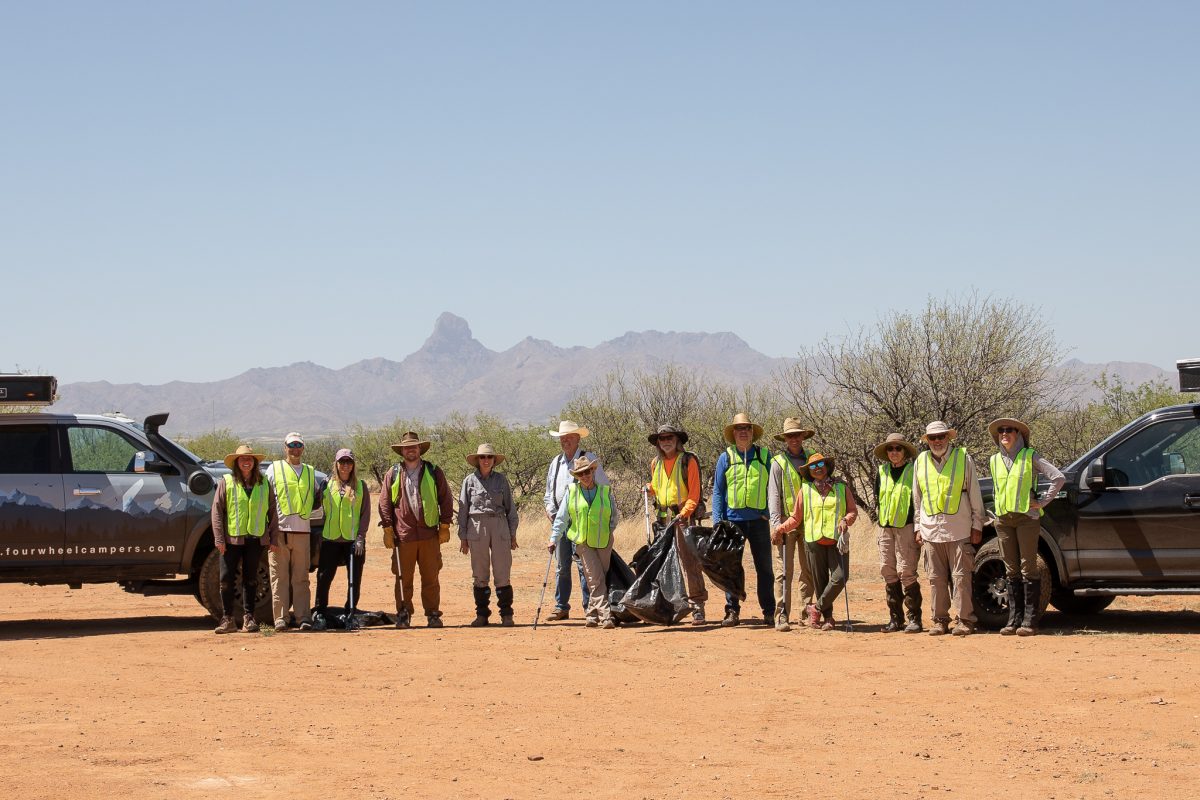
If you’d like to get involved in our next volunteer event, be sure to visit the Events section of our website.
Elisabeth Brentano is a writer and photographer based in California, but her passion for nature takes her all over the world to produce travel and environmental content. You can follow her at @elisabethontheroad on Instagram. All photos courtesy of Elisabeth Brentano.
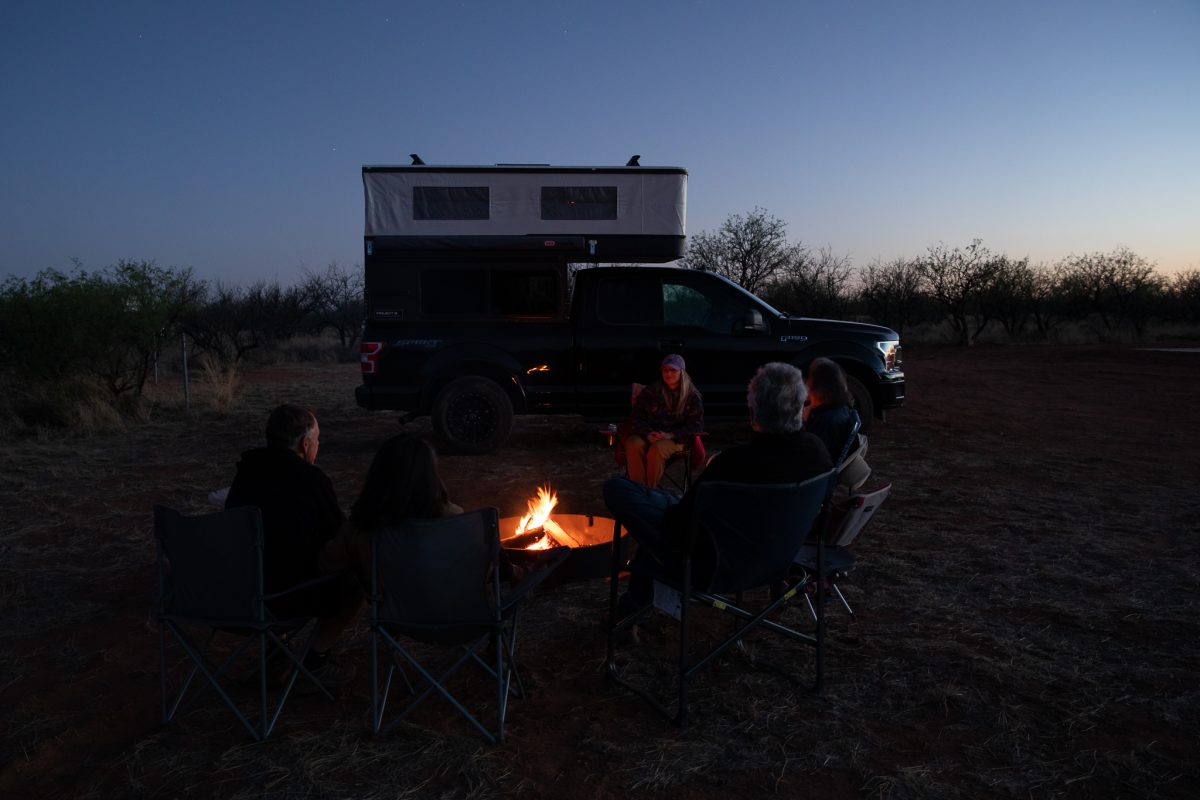
Related News
-
Reasons You’ll Regret an RV in Retirement
Congratulations, retiree! Stepping into retirement is a big deal – the world is at your fingertips! You want to ...
Read More -
Four Wheel Campers Hosts Third Annual Volunteer Event in Southern Arizona
In March 2024, Four Wheel Campers returned to the Sonoran Desert for our third annual volunteer event with Friends of Buenos ...
Read More -
Best Places to Stargaze in the United States
The moment your pop up truck camper is set up, the fire is lit, and the stars arrive, is one of the best feelings, especially ...
Read More -
The Perfect Campsite Challenge
Read the Full Article
Read More -
Lightweight Pop-Up Truck Campers: Hub-and-Spoke RVing with Boundless Adventures
Read the Full Article
Read More -
8 Breweries You Can Camp At With Your Four Wheel Camper
There’s nothing like a cold brew after a long day of travel. Better yet, there is nothing better than a cold hard brew at a ...
Read More -
Veteran and his Artistic, Off-Grid Lifestyle
We know our customers are special. Four Wheel Camper customers not only appreciate quality, efficiency, and great ...
Read More -
FWC Customer Pens Emotional Tribute
We know our customers are special. Four Wheel Camper customers not only appreciate quality, efficiency, and great ...
Read More -
7 Tips for Living on The Road Full Time From Industry Experts
Sometimes it’s the little details that get overlooked when prepping to live on the road full-time in your truck camper rig or ...
Read More -
Ski Resorts Where You Can Winter Camp in the Parking Lot
Embarking on a winter camping adventure offers unparalleled satisfaction, especially when you wake up snug and on-site in ...
Read More -
A Magruder Corridor Trail Adventure
Read the Full Article
Read More -
Get North – Overlanding In The Canadian Rockies
Read the Full Article
Read More
